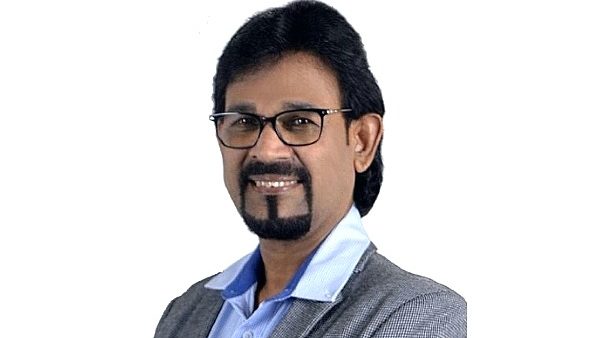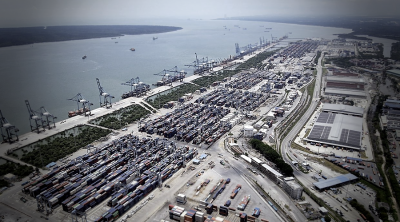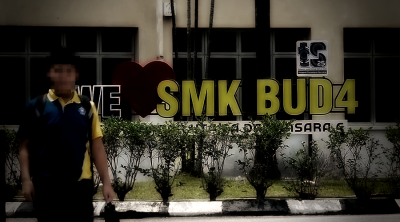
Mawlynnong, India, is the cleanest village in the world, whilst Denmark is the cleanest country in the world with the highest EPI (Environmental Performance Index) of 82.5.
On another bench, Denmark, Finland, New Zealand and Norway are the cleanest countries in terms of corruption.
As for Malaysia, we are neither clean regarding our upkeep nor our political administration. Not wanting to sound critical or sarcastic, we must admit that we are very weak in both of these areas.
Whom or what should we hold responsible for our sad condition — the lack of teachings by our parents, our lack of ability and knowledge of managing funds, or the possibility of a withering and fading value system?
In the case of our environmental cleanliness, each household discards approximately 1.17 kg to 4 kg of waste per day, especially in urban areas.
Malaysia generates 30,000 tons of waste daily, which is dumped in our 165 landfills.
By the year 2050, these landfills will be overflowing and we will not have any more available space to dump or bury our waste.
If we do not think of a solution to convert Waste to Energy (WTE), and without going seriously into circular economy, we will end up becoming the highest pollutant in the ESG index.
Primitive waste management techniques, especially landfills, and societal lackadaisical attitude are the biggest cause of concern for our ESG and sustainability indexes.
While Malaysia is trying hard to move from landfills to WTE, Malaysians are somehow cautious and concerned, and many parties condemn the implementation of it.
Although we have had issues with the venue and technology, these issues can be sorted out and should never be ignored.
We must find new technologies that suit our wet waste profile and weather conditions.
We must bring about militant education mechanisms to raise the awareness level of our cleanliness practices and environmental appreciation.
The current role played by the national waste management organization is extremely questionable, thus leaving no impact on the masses.
Simultaneously, there are no federal laws to control waste management.
Currently, five states are handling their respective waste, but this is not an advisable move.
Penang, Perak, Kelantan, Terengganu and Selangor are handling their waste with no control by any regulatory agency. This is not the way forward for waste management.
Penang is the one and only state which has kept a good record in terms of cleanliness.
On the aspect of political cleanliness, Malaysia is in a shameful state.
Three ex-prime ministers and a plethora of lawmakers, senior civil servants, CEOs of GLCs and many more are waiting to be questioned or arrested for corruption.
There are no immediate figures on the exact number of detainees, but the ecosystem is alarming!
How did this happen to our nation? We had such great leaders like Tunku Abdul Rahman, Tun Hussein Onn, Tun V.T. Sambanthan and Tun H.S. Lee, who had strived to build a great nation and to make our mark on the world map.
It is sad to say that their efforts were in vain; although Malaysia is still making its mark on the world map, it is for all the wrong reasons!
We have done pretty well by bringing development to our nation. Unfortunately, as our country developed, so did the pride and greed among our leaders.
If cleanliness in both the physical and moral sense is put into practice, we will certainly succeed in rising to new challenges, thus bringing our nation up the rung to the next level.
My recent visit to Cambodia and Mauritius showed that economically we are far better than many countries in the world. Yet at the same time, we have become corrupt and our nation’s good name tainted by several selfish political leaders.
We are number 47 out of 100 on the 2022 Corruption Perception Index reported by Transparency International (TI).
We were busy chasing money, assets and real estate, and ignoring values.
We moved from practicing the values taught by our parents and great teachers and instead chose to be driven by political leaders.
The teachings from these leaders have infused negative values such as accepting and offering bribes, and that “cash is king”; this has caused severe repercussions in society.
It has become a daily norm to learn of our leaders either being summoned by the MACC or attending court cases rather than attending to the rakyat’s woes.
This worrying trend is still not taken seriously by the political masters. To date, there are several rumors and coffee-shop talks about several lawmakers wanting to topple the current government, as they are fearful of their cases being brought to light and their boot from the political clout.
Such is the trend of our daily conversation topics on shameful deeds by those in high power who now face their wrath, and the pitiful rakyat who now face many woes.
I pray and hope that all these will change under the new leadership of our country.
Our value system, education and stringent law enforcement must be strengthened to bring political cleanliness to the next level.
The current climate and the type of leaders that we have are a total shame and sham.
We must eradicate them by publicly shaming the corrupt and empowering greater enforcement by changing the laws on corruption and even the reporting structure of the MACC.
We must institute greater monitoring mechanisms in the civil service, GLCs, banks and even the private sector. Carry out extensive and compulsory checks and audits on the political leaders, uniformed civil servants like the customs, police, immigration, firemen, every local authority/city hall and all the GLCs in the country.
At the same time, we must commend and reward honest and diligent leaders and civil servants, too.
If cleanliness in both the physical and moral sense is put into practice, we will certainly succeed in rising to new challenges, thus bringing our nation up the rung to the next level.
Jacob Burckhardt states that cleanliness “is indispensable to our modern notion of social perfection.”
A household or workplace may be said to exhibit cleanliness, but ordinarily not purity. Cleanliness is also a characteristic of people who maintain clean habits or prevent dirtying.
Cleanliness is not only related to hygiene and disease prevention, it is also a moral superiority or respectability in establishing cultural values in relation to social class, humanitarianism and cultural imperialism.
If we can clean our homes, maintain our streets with a new state of art waste management system and uphold a political governance system based on human values and principles, we can surely bring our nation back to being one of the best nations in the world, both physically and morally.
We can only achieve this ambition if we start now and reach out for these aspirations and make them a reality.
Mandela once said, “Difficulties break some men but make others. No ax is sharp enough to cut the soul of a sinner who keeps on trying, one armed with the hope that he will rise even in the end.”
This is a clarion call for every leader and every citizen of our country to make our nation cleaner, brighter and outshining all.
(Ravindran Raman Kutty is an active social worker.)
ADVERTISEMENT
ADVERTISEMENT








































